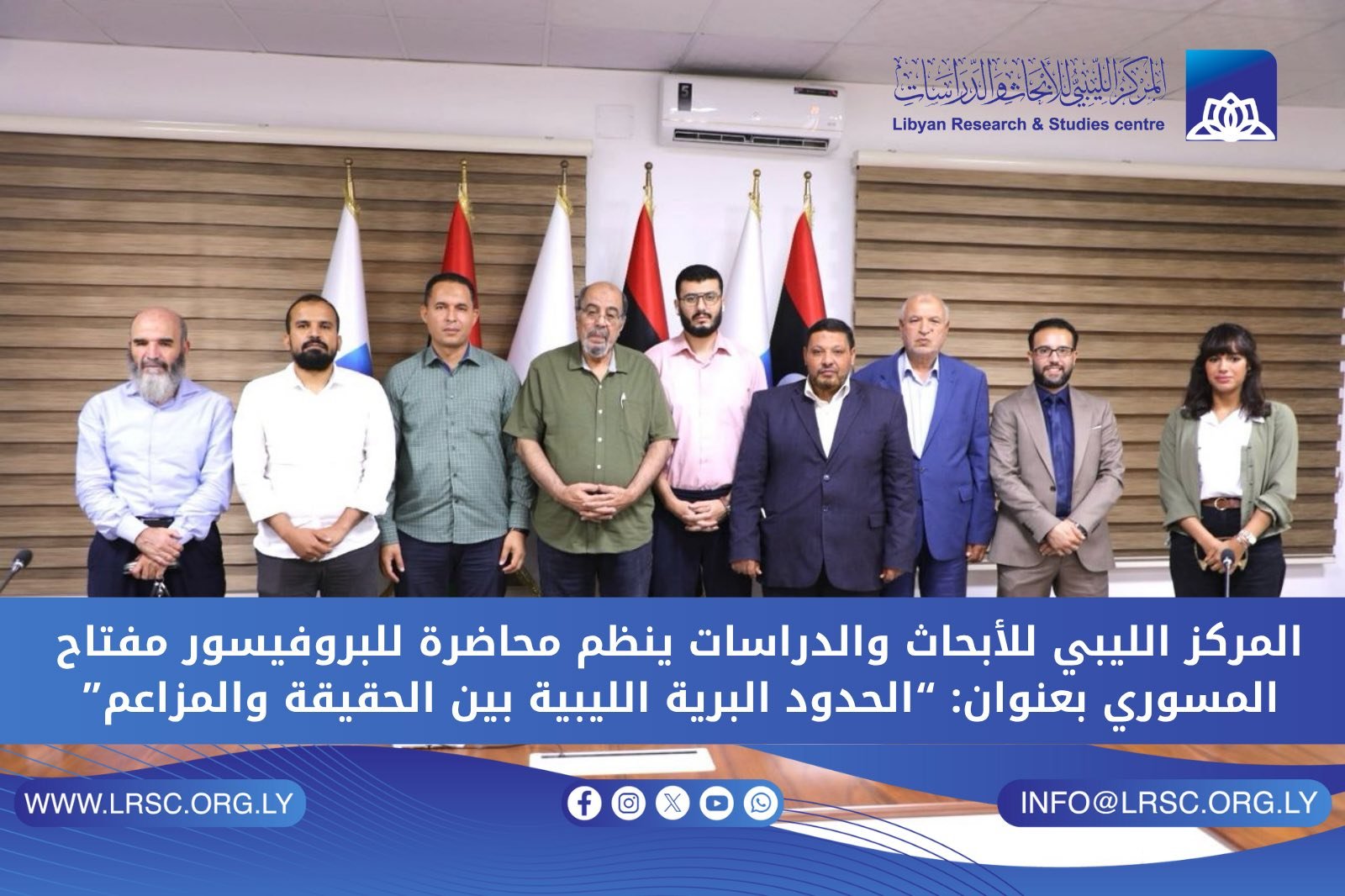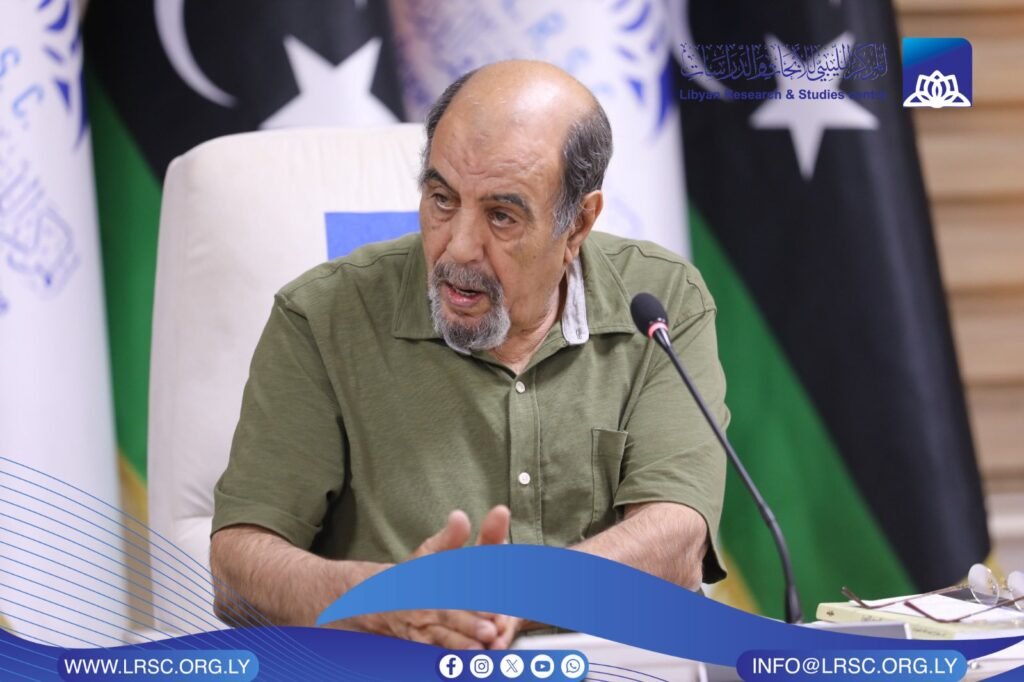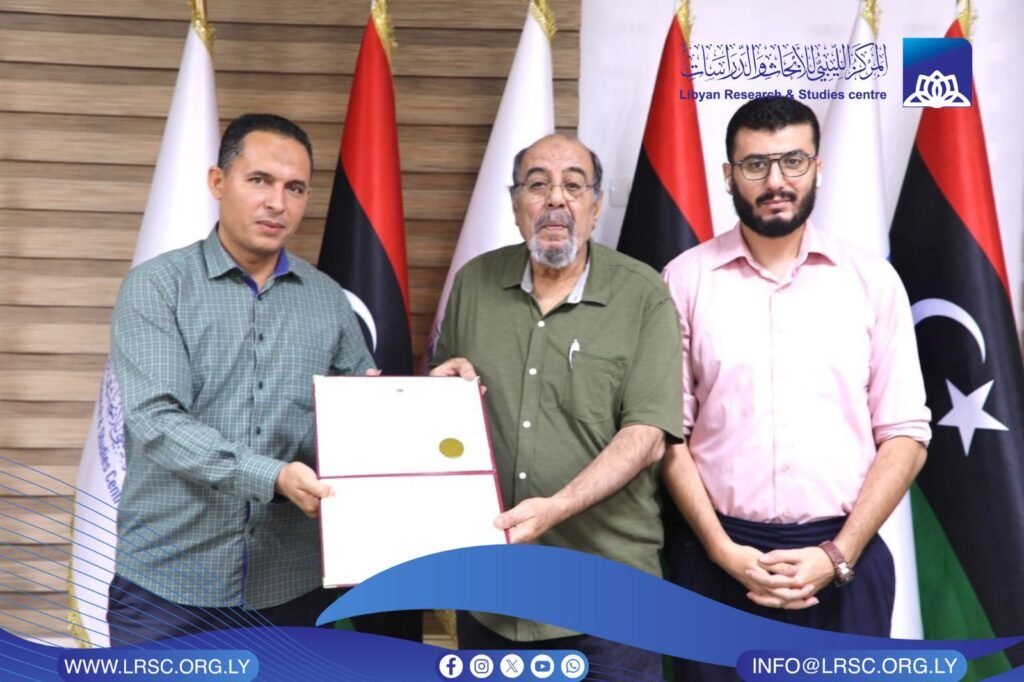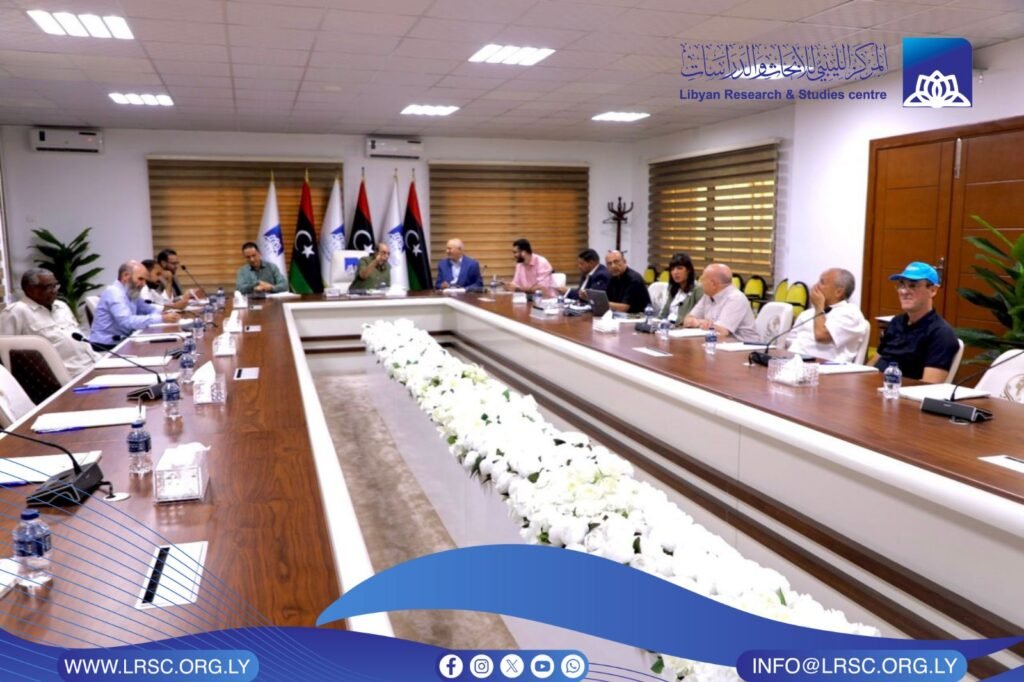The Libyan Land Borders: Between Reality and Allegations

Monday, October 6, 2025 | Tripoli, Libya
The Libyan Center for Research and Studies organized a scientific lecture as part of its cultural season titled:
“The Libyan Land Borders: Between Reality and Allegations.”
The lecture featured Professor Miftah Abdullah Al-Masouri, a diplomat, writer, and translator, former Ambassador of Libya, and graduate of the University of Sorbonne.
The session was opened by Mr. Mahmoud Al-Ghatmi, Director of the Libyan Center for Research and Studies, who welcomed the distinguished audience and introduced the guest lecturer. He expressed his appreciation for their attendance and participation in this scholarly event.
Professor Al-Masouri began his lecture with a general introduction on the concept of borders, describing them as an issue grounded in international agreements and forming a broad, complex topic intersecting with diplomacy, the philosophy of international law, and the jurisdiction of the International Court of Justice.
He pointed out that border issues are historically linked to the interests of major powers and that, at their core, borders are inherited realities—historical facts connected to nations’ independence—rather than mere claims or unfounded allegations.
He further explained that borders are often imaginary lines on maps or in data records, which do not necessarily divide shared history and geography as much as they define material and legal rights in international disputes.
To illustrate, he referred to examples such as the Tebu tribes spread across the Sahara between several African countries, the Habouni tribes along the Libyan-Egyptian border, and the Nawael tribes in western Libya bordering Tunisia and Algeria.
Professor Al-Masouri also discussed the mechanisms of border delimitation and demarcation, explaining that they are typically resolved through diplomatic means and bilateral dialogue between the concerned parties, or via regional arbitration by joint committees—eventually reaching the International Court of Justice if a formal complaint is submitted. He emphasized that military conflict remains the last resort in resolving border disputes.
In conclusion, Professor Al-Masouri asserted that international agreements and supporting legal documents remain the decisive factor in settling border issues, citing several historical treaties signed during different stages of state formation.
The session concluded with an open discussion, where the Center’s Director invited participants to exchange views and pose questions—adding a rich intellectual and interactive dimension to the event.




